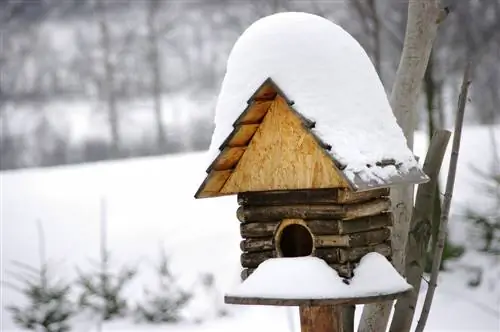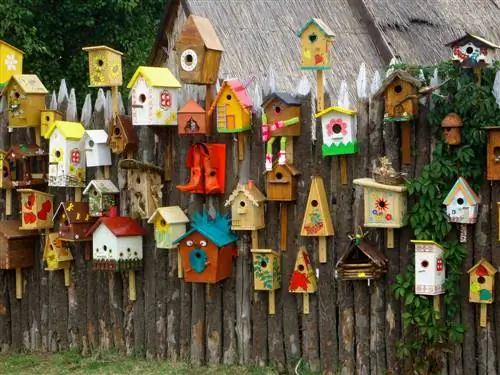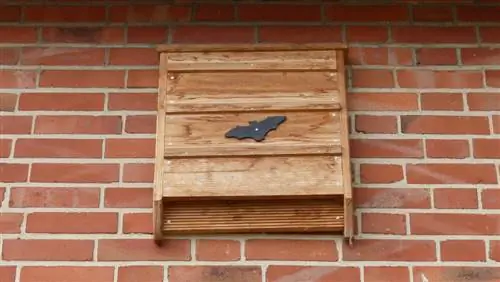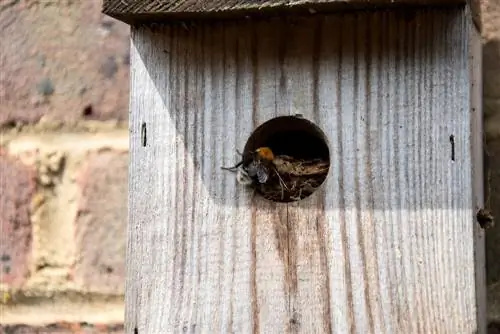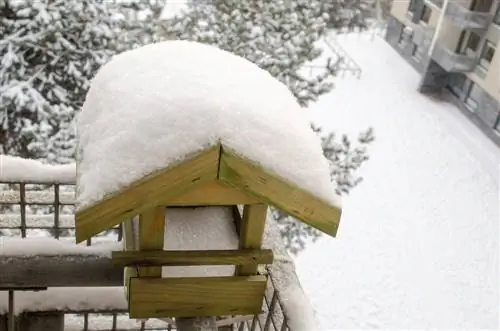- Author admin leonars@hobbygardeners.com.
- Public 2023-12-16 16:46.
- Last modified 2025-01-23 11:21.
Actually, nesting boxes primarily serve as breeding grounds for birds. But it's not just the young animals that need protection in the first few months. Bitterly cold nights can also be hard on adult animals. Nesting boxes are therefore often visited by bird species that do not fly south, even in winter. Here you can find out how you can provide titmice and co. with a welcome winter quarters.
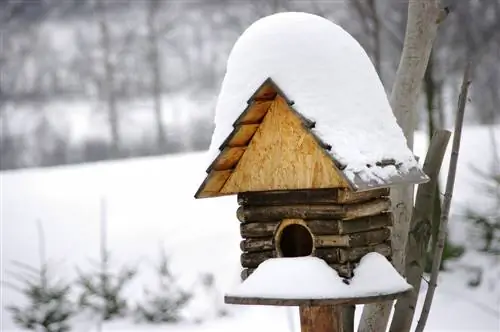
Do titmice overwinter in the nesting box?
Tits like to use nesting boxes as winter quarters to find protection from rain, wind and cold. It is important to hang the nesting box out of the wind, protect it from moisture and not point it towards the south. Clean the nest box in late summer and early spring.
Guests in winter
When the days get shorter and the first frost hits the roofs at night, we retreat to our heated houses. Birds would prefer to do the same as humans, but they often don't have the opportunity and instead have to spend the night on bare branches when the temperatures are below zero. A nesting box, on the other hand, ensures protection from rain, wind and cold and is therefore often visited by titmice. But other bird species and numerous small animals also use the shelter to overwinter:
- Sparrows
- Redcup
- Wrens
- Nuthatch
- Squirrel
- dormouse
- dormouse
- Bats
- and even butterflies
Note the timing of cleaning
In order not to disturb or drive away the animals during their winter rest, you should no longer clean your nesting box from October onwards. Late summer and early spring are recommended. At this time, you should remove old nests and fecal residue to prevent parasites from multiplying.
Tips for installation
So that a nesting box really serves as protection from the weather, you should consider the following when hanging it up:
- Hang the nesting box out of the wind
- Protect from moisture with an environmentally friendly varnish (€21.00 on Amazon)
- do not face south (risk of too much sunlight next spring)
Good chances of seeing you again
When it comes to domesticity, birds are very grateful, loyal animals who love the habit. If they feel comfortable in their winter quarters, they will most likely return to the familiar location to breed.

